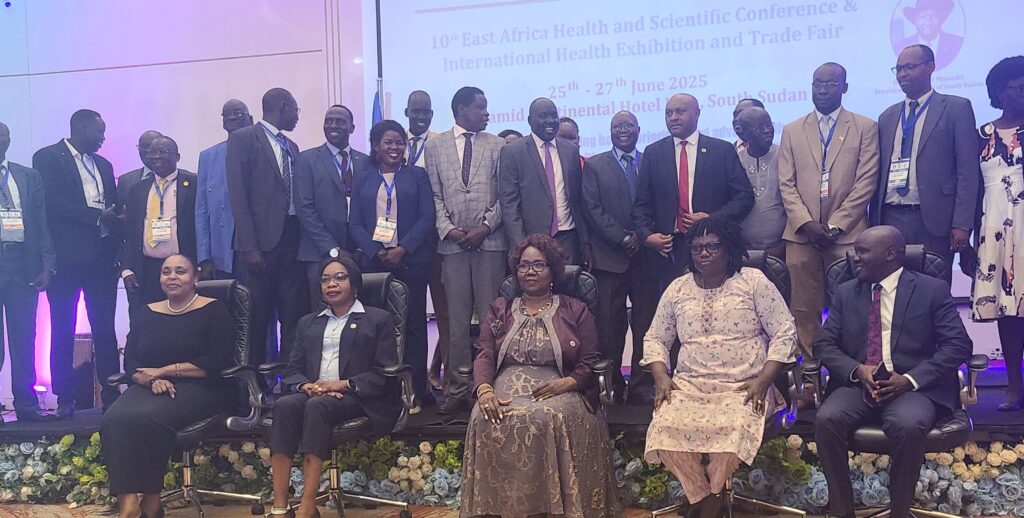South Sudan’s Vice President for the Service Cluster, Josephine Lagu Yanga, on Wednesday opened the 10th East Africa Health and Scientific Conference in Juba, welcoming delegates from East African Community (EAC) member states to promote scientific collaboration.
The conference, held under the theme “Addressing Health Priorities and Advancing the East African Health Agenda,” serves as a regional platform for scientists, researchers, policymakers, and development partners to tackle pressing health challenges.
Vice President Yanga praised the EAC for selecting South Sudan as the host, acknowledging initial concerns over the country’s security and capacity.
“We are immensely proud to host this conference for the first time since its launch in Uganda in 2007,” Yanga said. “Despite doubts, we have proven that South Sudan is ready to contribute to regional cooperation.”
She said the event aligns with the African Union’s Agenda 2063, which aims to achieve universal healthcare across the continent.
“Your presence here symbolizes unity and our shared goal of a healthier East Africa,” Yanga said. “South Sudan is committed to regional integration, including harmonized health standards and the free movement of medical goods and services.”
Yanga outlined efforts to strengthen South Sudan’s health system, including training medical workers and expanding digital infrastructure, but noted that many citizens still face high healthcare costs due to limited access.
“We are prioritizing primary healthcare, especially for vulnerable populations, to ensure quality care is a right, not a privilege,” she added.
The three-day conference has drawn about 300 participants, with researchers presenting findings on health, agriculture, environment, and education. Outstanding contributions will receive awards.
South Sudan’s Health Minister, Sarah Cleto Rial, said the event comes as the region grapples with outbreaks of Ebola and cholera.
“This conference is crucial for sharing solutions to infectious diseases, maternal health, and climate-related health risks,” Deng said. “We must collaborate across sectors like water, agriculture, and education to improve public health.”
Beatrice Askul Moi, Chairperson of the EAC Council of Ministers, urged attendees to apply research insights to real-world challenges.
“This forum strengthens regional cooperation and helps translate knowledge into action,” Moi said.




